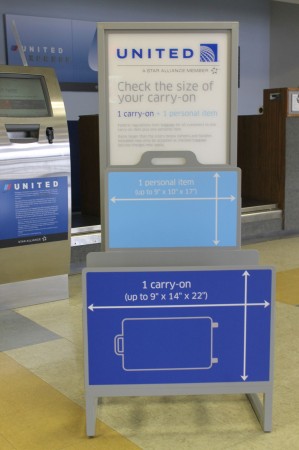 What if you just offer inexpensive themes without support?
What if you just offer inexpensive themes without support?
If you just got here for the first time, I'm in part six of a series on the WordPress theme space. If you missed any of my posts to date, here they are:
- Part One: What if WordPress themes were more expensive?
- Part Two: What should a WordPress theme cost?
- Part Three: What are you paying for when you buy a GPL Theme?
- Part Four: How should Theme vendors sell their themes?
- Part Five: Four mistakes WordPress theme vendors make
And now we come to one of the most often discussed situations that we all ponder – the idea that maybe we could sell cheaper themes without support, or with support a la carte. The question comes up regularly, because it offers, potentially, a neat way thru all the complexity.
The way it would work, it is suggested, is that you would sell a theme (maybe even at a lower price) and just not offer any support with it. The hope is that you could sell a lot of these themes to people who already know enough to not worry about asking for help.
To dig into the question, I'd like you to join me, for a brief second, in an airport. Think back to the last trip you took – I think you'll find that it's a helpful way to think about things.
Carry-on & Checked Bags
In the old days people checked bags. And then one day the airlines started charging for the number of bags you checked. But carry-on bags are free.
So you can imagine how it's supposed to work, right? People who have a lot of stuff check their bags. They pay for that level of support from the airline.
People who pack lightly don't have any charges. They can board, fly and walk off the plane without any additional cost.
You can see why I think this is an apt model to look at. It matches the situation we're talking about.
It also highlights some of the challenges from this model. Have you ever seen this?
Honestly, you've had to have seen it. There's no way you can't – because they have them at ticketing, at security and at the gate.
And you know why they have it – it helps people understand the difference between what you have to pay for, and what you can bring on a plane for free.
So what observations can we make from this context?
Before I make observations about selling themes without support, let me highlight one other dynamic that is similar.
Airports are filled with two segments of flyers – people who travel a lot (think: business travellers), and people who don't (think: family vacations).
I think you'll agree that the theme market is filled with two segments of buyers – people who know the developers and code (think: devs), and people who don't (think: end users and business owners).
So let's get into some observations….
Clear articulation and segmentation should make everything easier – but it doesn't
You could imagine a world where everyone flying paid attention to these guides and there were no issues. People would self-select who they were and how much they were carrying, and everything would be easy.
People would board planes and carry ons would just slide into the bins and they'd sit down.
But that doesn't happen. People regularly bring too much in their carry ons. They don't pay attention to the guides and bring on luggage that has no hope of fitting.
And they don't accept that simply. They jam. They shove. They make a fuss. They swear it fits every time. And it makes everyone wait until an attendant comes over and says, “sir, you need to check that.”
People will use other guides to make their decisions
The guides are simple. Based on the size or quantity of what you want to bring on the plane, you either need to pay or not. It's really that simple. But people still use other guides. They use other criteria. They consider whether they have time to wait for checked bags to be returned and if they don't have time, they try to jam everything into a carry-on.
So they ignore the guideline and make up their own. Whatever is most convenient to them. But that doesn't help anything.
We all end up waiting until an attendant comes over and says, “sir, you need to check that.”
Some folks don't think the rules apply to them
You know what I'm talking about, right? I don't know if you've ever flown first class. Every now and then I get upgraded and it's a fun experience to observe. People show up with more than two items. People want to put their laptops in the pouch in front of them. People want to lean back before the flight starts.
Every. Time.
People in coach are the same way. They try to get on the plane with two bags and a purse. Or a backpack, a duffel, and a pile of something or other.
Every. Time.
And we all wait to board, or all wait to take off, until someone has to explain that the rules they've been stating like drones actually does apply to them.
People selling themes, take heed
We think that clear articulation of the terms of a sale will help people understand what we're offering. It's not true.
We think people will be able to self-select whether they're an appropriate audience for our offering. It's not true.
We think if we say, “support for an extra fee” that people will realize it applies to them. It's not true.
In essence, I don't believe that a model where you charge for a la carte support will work for themes. People, even those outside your target market, will still buy it. They'll still ask questions. They'll still want refunds.
And it will cost you.
I'm not saying you can't do it. I'm just saying that I don't think it will turn out how you think it will.
What about the folks that WP Tavern talks about?
My friends at WP Tavern wrote about the theme space yesterday, asking about the “not so black” market.
If you don't know much about the licensing of WordPress themes, I wrote about it the other day. The GPL allows people to freely distribute themes you license under the GPL.
This has led to several folks spinning up sites where they offer premium themes and plugins at huge discounts, as long as buyers realize they won't get support. And that's what WP Tavern calls the “not so black” market.
I've already mentioned that it's not illegal to redistribute a GPL licensed theme. So in essence, what these sites are doing is exactly the point of this article. Almost.
Those sites are unable to use the trademarked names of the products. It's illegal.
If someone tells you that you can buy the developer license of Gravity Forms for $12 instead of buying it from Gravity Forms at $199, it sounds compelling. They tell you they're allowed to do it because of the GPL. But they're not. They're allowed to distribute code, yes. But they're not allowed to use Rocket Genius' trademark of the term Gravity Forms.
How likely are you to buy a theme or plugin without the trademark?
Think of what those sites would look like if they simply said:
We sell themes that we think look good for $15 instead of $70.
So?
What inspires trust and interest is if you say:
We sell StudioPress themes for $15 instead of what they charge.
But you can't do that. Because you don't have the right to use their trademark.
In the end, if the companies that create their products trademark their brands, the result will be fairly boring copy on fairly boring sites that don't make millions in revenue. And we'll stop talking about them.
But let's say I'm wrong. Let's say they start growing. What will then happen?
Won't someone else come along and offer the exact thing for less?
And then again. And again. And guess where you end up?
In the WordPress theme repository looking for free themes that at least were vetted.
Because make no mistake, those other sites that don't code their own products and are just looking to make a quick buck, they will learn that a small bit of code in those themes will make them more if your site (unknowingly) starts selling Viagra.
And that's why most free themes not found on the WordPress theme repository are simply vehicles for damage and corruption.
In Conclusion
By now you've likely figured out that my answer to the question is simply this: I don't think it will work like anyone hopes it will. Selling themes without support, or making it a la carte, sounds good. But the final result is still selling these products to people who will eventually want support, a demand for support (that may be cost-prohibitive), and the cost, internally, of having to say no a lot more. Which may have the nasty consequence of giving you a bad reputation – even if you're doing exactly what you stated you would do (not support a theme).
I could be wrong. It happens a lot over here in my home. Or you may agree. Either way, I want to hear it in the comments below.

